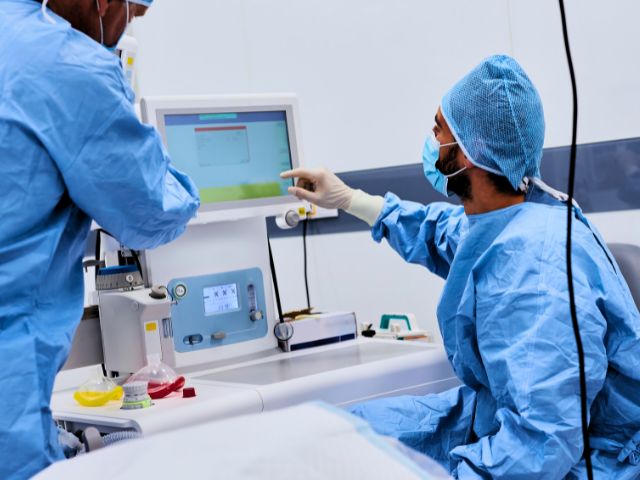How To Become A CRNA?
To become a CRNA you need a lot of hard work, dedication, and years of studying and then clinical experience. It will take seven to ten years to become a CRNA, including a BSN.
The pathway to becoming a CRNA might differ from one to another. But the following steps are required to become one. Here we will elaborate on those for you.
Get A Bachelor’s Degree In Nursing (BSN)
To become a nurse, the very first step is to get a bachelor’s degree in nursing. For that, you will have to spend four years in nursing school. However, you can also join the nursing bridge program after earning an associate degree in nursing with clinical experience.
A bachelor’s degree in nursing will give you the foundation knowledge to practice as a nurse. It will educate you about the basics of nursing principles and practices.
To go anywhere in the nursing specialty, the most important step is to get a bachelor’s in nursing.
Become A Registered Nurse by Passing NCLEX
To practice as a healthcare provider in the US, you will have to get a license. After earning your bachelor’s in nursing, you need to pass the NCLEX (National Council for Licensure Examination for Registered Nurses) exam to become a registered nurse.
Gain Relevant Experience
To become a CRNA, you need to have one to 2.5 years of experience working in a critical care setting such as the ICU. In those years, it is essential to learn advanced skills such as mechanical ventilation, vasoactive drug administration, and hemodynamic monitoring along with knowledge of diseases and anesthetic drugs.
Enroll in Doctoral Degree in An Accredited Program
To get into the CRNA program, make sure to network with other healthcare providers around you, do networking, get recommendations, and work diligently because you will require other people to speak on your abilities and skills.
Make sure to keep a record of your accomplishments and shadowing work as they will be helpful for you to show why and how you are the appropriate choice for the program.
The accredited nurse anesthesia programs prepare you to become a CRNA. In that program, you will have to do coursework to gain clinical experience. It will help you specialize in the training. The program may take two to four years to complete.
By the time you graduate as a CRNA, you will have around 9000 hours of working experience.
Become Certified
Once you have graduated from the CRNA program, you need to get a license to practice. For that, you must pass the NCE (National Certification Examination) administered by the NBCRNA.
Recertification
Being a healthcare provider, you need to get your license renewed from time to time. Therefore, after getting the license once, complete your continuing education hours, follow state licensure requirements, and keep getting the recertification done.
You need to get your certification renewed every 4 years and after every eight years, you will have to take the test again. Also, to recertify you need 100 hours of continuing education in various areas such as pathophysiology and anesthesiology.









